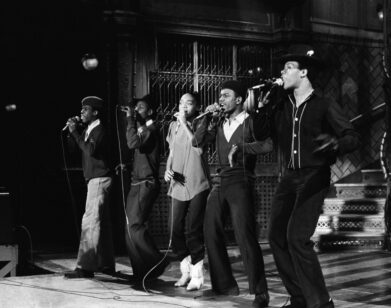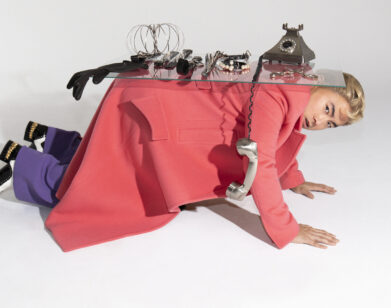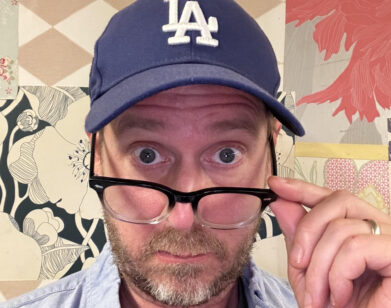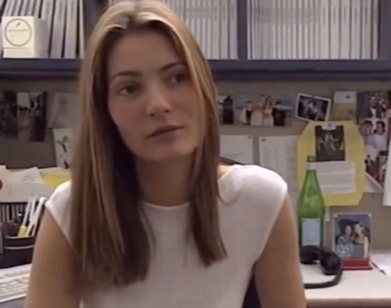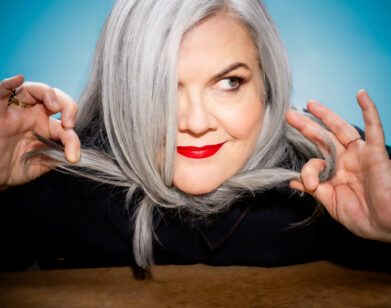“You Can Say What They Can’t”: Sam Jay and Michael Che Have a Conversation About Comedy
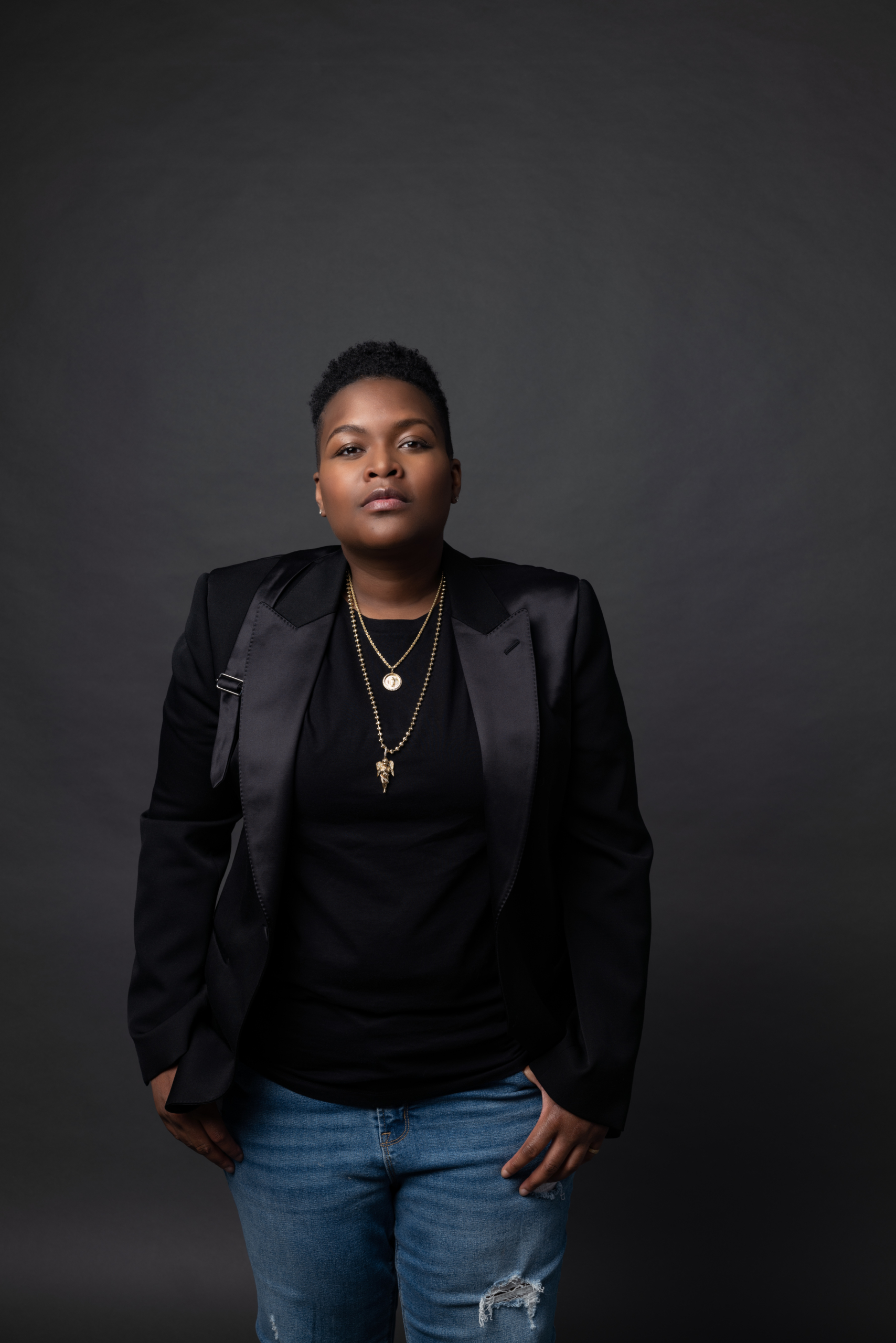
As a writer on Saturday Night Live, Sam Jay had to relearn how to be funny. The 38-year-old comedian was used to writing jokes from the perspective of a Black lesbian who grew up in the Boston projects and who lost her mother at a young age. But at SNL, a job Jay accepted with some reservation, she suddenly had to assume the vantage points of a multitude of voices and genders and races. In other words, going from stand-up to sketch was a shift to which she is still adjusting. But if you want to see the reason the sketch comedy institution hired her in the first place, look no further than 3 in the Morning, her first comedy special now streaming on Netflix. Recorded on February 22 at The Masquerade in Atlanta, the hour-long set finds Jay at the top of her game, offering up uncompromising—and sometimes uncomfortable—takes on everything from Greta Thunberg to #MeToo. Just before the special was released, she connected with her friend and colleague Michael Che to discuss what goes into a comedy special, American arrogance, and her SNL learning curve.
———
SAM JAY: Hey, Che. What’s going on?
MICHAEL CHE: Is it strange that I’m interviewing you?
JAY: I love it.
CHE: The first thing I wanted to ask you is, who are your top five-comedians?
JAY: Chris Rock, Eddie Murphy, George Carlin, Dave Chappelle, and Bill Burr.
CHE: Wow! I’m always curious about a comedian’s inspirations because you understand where people are coming from when you realize who they’re listening to. Do you feel their fingerprints in your work? Sometimes when I hear too much of my favorites, I’ve got to not listen to them for a long time, because I almost hear their voices in my voice.
JAY: I stop listening to people out of that fear. Especially when I was doing the special, I took a hard pause on everybody, because I just didn’t want to be influenced in any way.
CHE: I saw your special when you taped it, and it was awesome, and I could tell that you made sure it sounded like you. Sometimes people get specials prematurely before they’ve really developed their voice, and they can’t execute it in the way they would be able to years down the line. But you got yours at a time when you’re coming into your actual voice and I don’t hear the influences as much. It’s really you. Another ill thing about your top five is that you have a perspective that’s very unique from everybody else on that list. You’re a Black lesbian from Boston. You can say what they can’t. You have a whole wealth of experience that you can talk to that nobody else can.
JAY: I felt that, especially as I was coming up. And then the more you travel and do standup, the more you realize there’s not a lot of people saying shit like this.
CHE: When I was at your special, your whole family was there. How did you navigate that?
JAY: A lot of them had never seen me do standup, like a lot of my aunts. That was their first time coming to any type of show. There’s a part of me that’s like, “Damn, I don’t want to be disrespecting nobody.” But I do have to be authentic to the shit that I want to say, and I can’t allow them to control my voice. So I was like, “Fuck it, you’re not saying nothing that ain’t true and you’re not saying anything to be disrespectful.” The stuff that you’re saying is relative to the joke and makes sense. You’re not just using them as a punchline.
CHE: I was sitting where your family was sitting and they were so proud of you. You were of course getting laughs from your family, but there was also that connection where it was like, “She ain’t lying,” which is, I think, the best compliment you could get from somebody who knows where you came from. Was it nerve-wracking even inviting them?
JAY: Yeah. There’s a lot of pressure. They’re so nervous for you. No one in my family’s ever done anything at this scale, so I didn’t want to deal with their fears being projected onto me. I don’t want to be looking in my aunt’s eyes and knowing she’s nervous.
CHE: You’re hood, from Boston, but you go into Saturday Night Live, and it’s a whole other culture of people. How do you navigate those two audiences, making sure that home gets it, but also that mainstream America gets it?
JAY: That’s a good question, Che, but it’s going to end in a corny answer. I went to an Irish Catholic school, but I lived in the projects, so none of the kids in my neighborhood went to my school. It was a mostly white school, so I’ve had that fish-out-of-water feeling. Being from Boston, that’s unavoidable. You’re in a lot of spaces where you’re the only person of color, so that doesn’t throw me off. Improv, however, was a world I didn’t know at all. It took a lot to learn how to riff with people at work. I’d be like, “Yeah, think you’re a construction worker,” and then Beck [Bennett] would start doing a voice in my face, and I was like, “Yeah, yeah, whatever nigga. I don’t do that! Why are you doing this?” I didn’t understand it at all. And then I realized, “Oh, you’ve got to riff back with him, that gives him energy, and then he can figure this shit out.” It took a little minute of failing at it. There was a lot of stuff that you told me, like, “Even though your shit ain’t banging right now, just chill and watch how the table flows.” And also understanding that I’m writing for a multitude of voices.
CHE: Your special was made in the Before Times, as I’m calling it. But it holds up so well. People are going to think you did it after the quarantine and after the protests, because your energy matches the frustration of the country, for our community. Is that something that maybe you feel proud of, or do you wish you had more time for it?
JAY: It’s both. When I saw it, I was like, “Oh, man, this is dope that I was right on the pulse of things.” Then there’s this other part of me that’s like, “I wish I could’ve held it, too.” But it was made at the right time.
CHE: They always say that it takes your whole career to do your first special. Is there stuff for the special that, when you were considering it, you were like, “Okay, this is a great joke that I’ve been doing for years, but it’s not fitting the tone of what this special is”” Or is it like, “Yo, I’m going balls to the wall—all of the best jokes I’ve got are going in”?
JAY: It was more specific. I definitely had things that I loved that just didn’t work here. I like every piece to inform the other piece. It was less about jamming in all the bangers, because all the bangers might not fit together. It was more about finding the bridges?
CHE: I think we lose a bit of that in specials. I’ve always felt like when I’m watching a special that I should already know who this person is, and that I’m just finding out more about them. That’s why I say a lot of people get specials before they build a body of work that people are interested in seeing.
JAY: It’s like a first album, in the sense that you have to hear mad singles. You’ve got to hear the EP, then when you hear the album, it’s like, here’s the whole story.
CHE: How did you come up with the title 3 in the Morning?
JAY: That’s when it got made. I didn’t want a title that was, like, Lesbian and Loud.
CHE: When I hear 3 in the Morning, I think about late-night screaming arguments at the Comedy Cellar.
JAY: That’s where it got made!
CHE: Oh, that’s hilarious.
JAY: It’s all a part of it. It’s the late nights at the Cellar with Gary at the bar, when we end up talking for an hour about a heavy topic, and I’m like, “Oh, I’m going to use some of this.”
CHE: I did a special as well, and that feeling after you’ve taped it, it’s like you’ve got the monkey off your back. Do you already start thinking about the next one, or do you take time to enjoy that it’s done?
JAY: It’s weird because the world’s shut down. If it wasn’t, I might’ve wanted to make another album because I might’ve been out in the streets and you start to get inspired. I don’t have that, so that feeling’s not coming so quickly. So I’m sitting in it, because I have no choice but to sit in it.
CHE: Have you been doing comedy during quarantine?
JAY: I’ve been doing some outdoor shows in Brooklyn, just to take the edge off.
CHE: Have you found the audience to be different?
JAY: Honestly, they feel the same.
CHE: Isn’t it bizarre how things start to settle? I would hear people saying “the new normal,” and I thought that was such a bullshit term. Now it’s kind of perfect. It just really does become the new normal. Before I leave the house, I grab my mask. I don’t shake anybody’s hand. It’s weird how fast these things become routine.
JAY: And it becomes a way to judge people. A lady walked by with her mask down and I immediately looked at her like, “Ew, bitch. What are you doing?”
CHE: That happened to me. I had my mask off because I was drinking coconut water, trying to stay hydrated. This guy looked at me like I had do-do on my hands. I’m just trying not to pass out in 95-degree heat. It’s weird trying to keep up with this new etiquette, and it’s hard to tell how long it will last.
JAY: But at the same time, there’s actually a way to tell. Other countries are handling it. So there is a way to tell. We’re just living in this fuckin’ crazy bubble where we’re acting like the rest of the world hasn’t dealt with this, too. We’re just being total assholes about it.
CHE: It’s an odd type of arrogance that only Americans have, where we’re like, “Man, if we don’t figure it out, it hasn’t been figured out.”
JAY: We’re like, “Will there ever be a time with no masks?” And New Zealand’s like, “Yes nigga, today! Today is our time with no mask! Are you nuts?”
CHE: To me, that’s like the white brain in me, where I feel like we make fun of white people for doing that to our community, but we as Americans, we do that all over the world.
JAY: Yup. I was just reading an article about that from someone in Africa who was talking about Black Is King, and they were like, “Black America is king.” They were just talking about how we’re still imperialistic upon them, in our own fucking way.
CHE: Oh, absolutely. When I was a kid, the worst thing you could call a Black kid in elementary school was “African,” because it was an insult to be from another country.
JAY: Or Haitian, in Boston. You call them Haitian, bro, they was going to fight you. Even a Haitian. You call a Haitian a Haitian, they’ll fight you.
CHE: Oh boy. They really did a number on us Sam, didn’t they?
JAY: We were all messed up, bro, and proud of it.
CHE: Just to get back to your special, what I find intriguing about your voice is that you’re not above anything you’re talking about. You’re in it. It’s like your first breakthrough in therapy, when you’ve still got the tendencies, but you’re aware that you’re full of shit in a lot of ways.
JAY: That’s the best way that I’ve ever been described. That’s exactly how I feel. I’m still trying to practice what I preach, so maybe don’t listen to me. But also, I think I’m right.

